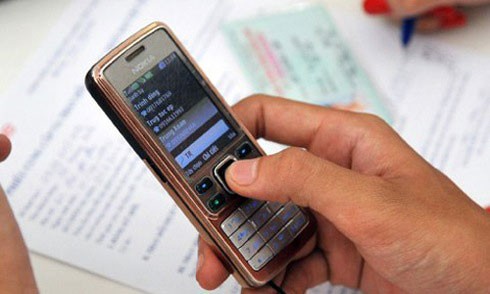 Economy
Economy


|
| 2G will be turned off by September next year. Photo baodautu.vn |
HÀ NỘI Fifteen million subscribers currently using 2G will have to convert to 4G.
The Ministry of Information and Communications (MIC) said that 2G will be turned off by September next year. Frequency licences issued to carriers deploying 2G will expire by that time.
A seminar on turning off 2G signals to bring people to the digital environment was held on Tuesday.
Nguyễn Phong Nhã, deputy director of MIC’s Việt Nam Telecommunications Authority, said that the ministry is oriented to start 6G technology by 2030.
Therefore, 2G technology phones would no longer be used, imported and circulated on the market, said Nhã.
Statistics from network operators report that currently the country has about 15 million 2G subscribers.
MIC has issued a regulation prohibiting the import of 2G devices since 2020. Current devices imported into the Vietnamese market are through unofficial channels.
Thus, 2G devices in Việt Nam are at the end of their usage cycle. When the device breaks down, it will be replaced by the users.
To prepare for the roadmap, mobile telecommunications carriers are currently developing policies to support users when 2G signals are stopped, focusing on two main supports for terminal support devices and telecommunications charges, so that customers can proactively switch to using smartphones.
Currently, some major network operators have turned off 2G and 3G signals in areas with low demand for this service.
In addition, network operators have also prepared cheap 4G phones at only about VNĐ300,000 (US$12.5) for voice and texting services to serve a small class of customers who only need these features.
Nguyễn Trọng Tính, deputy general director of Viettel Telecom, said that Viettel was the first network operator to successfully convert all 3G subscribers to 4G, leaving only about 0.2 per cent of customers using 3G.
Discontinuing old technologies to focus resources on new technologies would bring great economic benefits and resources to telecommunications businesses, he said.
However, Viettel Telecom representative said that the rate of 2G subscribers in Việt Nam was still generally high compared to other countries in the region and developed countries with approximately 16 per cent of subscribers still using 2G only.
To implement the above policy, Tính said that Viettel Telecom would support customers with charges, bringing 4G service prices to very low prices, approaching and even lower than current 2G services to suit the needs of customer payment.
Regarding terminal devices, Viettel has supported 50 per cent of the device price for 2G customers switching to 4G for the past two years.
"We co-operate with phone manufacturers to support customers in accessing smartphones at cheap prices of only about $60 - $70 for one phone."
With 4G phones with voice and texting services features, Viettel supports the purchase cost of up to 50 per cent depending on each customer.
These phones are distributed by Viettel at the lowest price of VNĐ290,000.
Meanwhile, Nguyễn Quốc Khánh, deputy head of the technology department of VNPT Group, pledged that the business would give away smartphones, subsidise phone prices, and deploy attractive packages for customers using 2G living in remote areas and islands to help people convert to 4G technology. VNS




